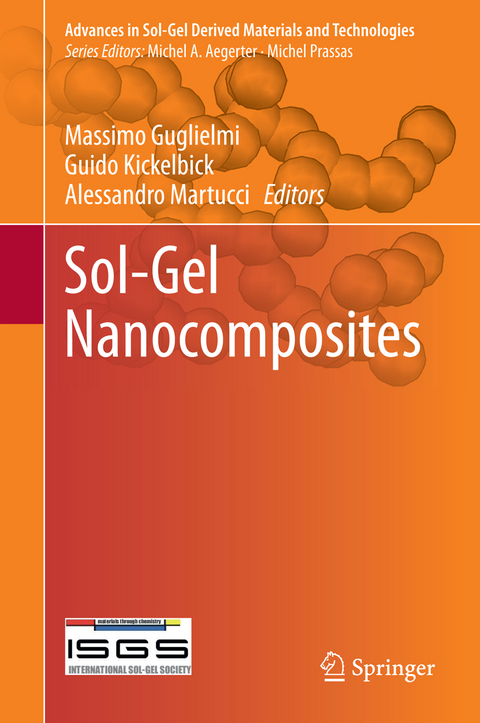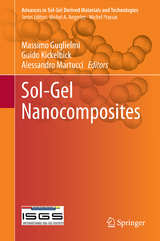Sol-Gel Nanocomposites
Seiten
2014
Springer-Verlag New York Inc.
978-1-4939-1208-7 (ISBN)
Springer-Verlag New York Inc.
978-1-4939-1208-7 (ISBN)
This book provides comprehensive coverage of nanocomposite materials obtained by the sol-gel method, from synthesis to applications and including design tools for combining different properties. Sol-gel nanocomposites are of great interest in meeting processing and application requirements for the development of multifunctional materials. These materials are already commercialized for a number of applications from scratch-resistant and anti-adhesive coatings to optical materials with active and passive properties. Biomedical applications, holographic recordings, fuel cells and hydrogen storage, resists and catalysts are among the potential uses. The novel mechanical, optical and electronic properties of nanocomposite materials depend not only on the individual component materials, but also on their morphology and nanoscale interfacial characteristics. Sol-gel is a highly versatile method for obtaining both the matrix and the filler of the nanocomposite and for chemically adjusting the interface to optimize structure and properties. Although nanocomposites are widely discussed in the literature, the focus has been mainly on polymer nanocomposites. This book addresses nanocomposites based on inorganic or hybrid organic-inorganic matrices, with an emphasis on the scientific principles which are the basis for nanocomposite sol-gel synthesis and applications. A didactic approach is followed, with different topics developed from a fundamental point of view together with key examples and case studies.
First comprehensive treatment of nanocomposites obtained by sol-gel methods
Focuses on nanocomposites with inorganic and hybrid organic-inorganic matrices
Describes design tools to optimize structure and properties for various applications
Covers synthesis, processing, characterization, and modeling
Uses first principles to describe the influence of interfacial characteristics on materials properties
Presents case studies for both films and bulk applications
Provides examples of products on the market, with descriptions of the scientific principles at the base of their success
Includes contributions from recognized leaders in this multidisciplinary area.
First comprehensive treatment of nanocomposites obtained by sol-gel methods
Focuses on nanocomposites with inorganic and hybrid organic-inorganic matrices
Describes design tools to optimize structure and properties for various applications
Covers synthesis, processing, characterization, and modeling
Uses first principles to describe the influence of interfacial characteristics on materials properties
Presents case studies for both films and bulk applications
Provides examples of products on the market, with descriptions of the scientific principles at the base of their success
Includes contributions from recognized leaders in this multidisciplinary area.
General Introduction to the topic.- Nanofillers.- Host matrices.- The Role of the Interface.- Nanocomposite Formation Processes.- Nanostructure and its Characterization.- Modelling tools.- Properties.- Applications.
| Reihe/Serie | Advances in Sol-Gel Derived Materials and Technologies |
|---|---|
| Zusatzinfo | 9 Illustrations, color; 136 Illustrations, black and white; IX, 227 p. 145 illus., 9 illus. in color. |
| Verlagsort | New York |
| Sprache | englisch |
| Maße | 155 x 235 mm |
| Themenwelt | Naturwissenschaften ► Chemie ► Anorganische Chemie |
| Naturwissenschaften ► Chemie ► Technische Chemie | |
| Technik ► Maschinenbau | |
| Schlagworte | Hybrid nanocomposites • Inorganic nanocomposites • multifunctional materials • Nanocomposite characterization • Nanocomposite modeling and simulation • Nanocomposites • Nanoscale interfaces • Sol-gel technology book |
| ISBN-10 | 1-4939-1208-9 / 1493912089 |
| ISBN-13 | 978-1-4939-1208-7 / 9781493912087 |
| Zustand | Neuware |
| Haben Sie eine Frage zum Produkt? |
Mehr entdecken
aus dem Bereich
aus dem Bereich




